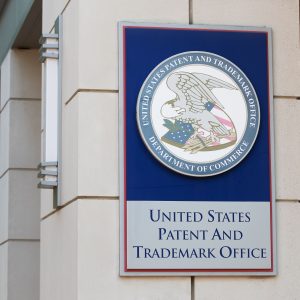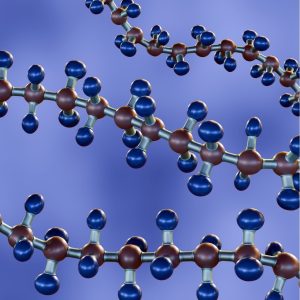
Professional Service
Patents
Patents represent a key aspect of our clients’ intellectual property and may have significant commercial value, whether used to protect core technology, keep competitors out of a particular technical/commercial space, or as a source of revenue through licencing or assignment of rights. We understand that the role of patents may vary depending on the nature and life-stage of our clients’ businesses and seek to offer practical and tailored advice.
In drafting patent applications, we seek to define your inventions in a way that offers commercially-relevant protection, provides flexibility to address any unforeseen objections arising during prosecution, and ultimately provides valuable rights that can be defended and enforced, if required.
The Schlich attorneys adopt a creative and practical approach to prosecution, and have experienced considerable success through direct interaction with EPO and UKIPO Examiners. We can also advise on effective strategies for accelerating prosecution, or deferring costs, to reflect your commercial needs. We are also able to coordinate patent prosecution worldwide, either directly through the European and International (PCT) patent systems or by working through established relationships with trusted foreign law firms.
The Schlich patent team have developed considerable experience, and a proven track record of success, in EPO opposition and appeal proceedings (both offensive and defensive). We are also able to advise on, and propose practical solutions to, potential freedom-to-operate and infringement issues.
Our Specialist Patent Attorneys
The Patent Attorneys at Schlich offer a combination of technical knowledge and broad experience in all aspects of patent drafting, prosecution, oppositions and advising on and managing contentious issues.
Recent Insights
Read the latest insights from the Schlich team reporting recent cases and updates to patent law.
Ex Parte Re-Examination at the USPTO
In the United States, third parties have very limited opportunities to influence patent prosecution, and the main post-grant challenge routes (inter partes review (IPR) and litigation) are notoriously costly and time-consuming. Ex parte re-examination offers a practical, lower-cost alternative by allowing any party to submit prior art that prompts the USPTO to reassess an issued patent’s validity.
G 1/23 confirms that products placed on the market before the effective date of a European patent application constitute prior art, regardless of whether they can be reproduced
On 2 July 2025, the EPO’s Enlarged Board of Appeal (EBA) issued its decision in G 1/23. The referral stemmed from T 0438/19, an appeal against the decision of an opposition division to reject an opposition against a European patent directed to a material for encapsulating a solar cell which comprises an ethylene/alpha-olefin copolymer with certain defined properties, including a content of aluminium element of from 10 to 500ppm. D1 disclosed a commercially available copolymer, ENGAGE® 8400, which the opponent/appellant sought to rely on as the closest prior art for their inventive step challenge; however, the Patentee argued, with reference to G 1/92, that ENGAGE® 8400 cannot be reproduced (i.e., it is not enabled) and therefore it has not been made available to the public within the meaning of Article 54(2) EPC and thus is not a suitable starting point for the assessment of inventive step. Grappling with how to interpret G 1/92, the Board in T 0438/19 referred three questions to the EBA focused on understanding whether a commercial product, put on the market before the filing date of a European patent application, can be excluded from the state of the art for the sole reason that it could not be reproduced. The EBA has now answered, and the short answer is no!
Going it Alone: The EPO Chooses a Different Path to Claim Interpretation to the Courts
Many of us thought G 1/24 would convince the EPO to change its approach to claim interpretation, however a few recent decisions of the EPO’s Boards of Appeal and at least one commentary regarding the EPO’s official guidance to its examiners suggest the EPO’s practice of interpreting the claims in isolation may be here to stay. The EPO thus appears to be taking a different approach to claim interpretation to the national courts and the UPC, despite the Enlarged Board of Appeal stating in G 1/24 that it considered such an idea “a most unattractive proposition”.
Cancelled claims can come back to haunt you: Lessons from Colibri v. Medtronic
Patent infringement in the United States continues to evolve, particularly in how prosecution history impacts the interpretation of patent claims during the Infringement proceedings. A recent decision by the U.S. Court of Appeals in Colibri v. Medtronic offers a compelling example of this trend, illustrating how choices made during patent prosecution can later affect enforceable rights.
New Referral to the Enlarged Board of Appeal: The Description Amendment Saga Goes On!
The question of legal basis for the EPO’s description amendment requirement has been the subject of debate for a long time. However, a recent referral to the Enlarged Board of Appeal (G 1/25) has set the stage for finally settling this matter.
Is ChatGPT a skilled person? The EPO says no.
In today's world, artificial intelligence has become a part of many aspects of our daily lives. Unsurprisingly, AI is also making its way into the field of intellectual property law, as large language models are being used in proceedings before the EPO.
EPO’s Enlarged Board of Appeal Issues Much-Anticipated Decision in G 1/24
The question of whether and, if so, the extent to which the description and drawings should be used to interpret the claims of a European patent / European patent application has been a hotly contested topic in the world of IP for a considerable length of time. In its recent decision in G 1/24, the Enlarged Board of Appeal has finally settled the issue, holding that the description and drawings must always be used to interpret the claims. This decision thus brings EPO practice into line with the practice of the national courts of the EPC contracting states and the UPC.
US Federal Circuit Decision to Narrow the Scope of IPR Estoppel
US Federal Circuit confirm that IPR estoppel under Section 315(e)(2) “does not preclude a petitioner from relying on the same patents and printed publications as evidence in asserting a ground that could not be raised during the IPR, such as that the claimed invention was known or used by others”.
Get in touch

Our team of UK and European Patent Attorneys and Chartered Trade Mark Attorneys are highly knowledgeable and experienced in assisting clients with all aspects of their IP needs.
Contact us now to find out more about how we could help you and your business.















